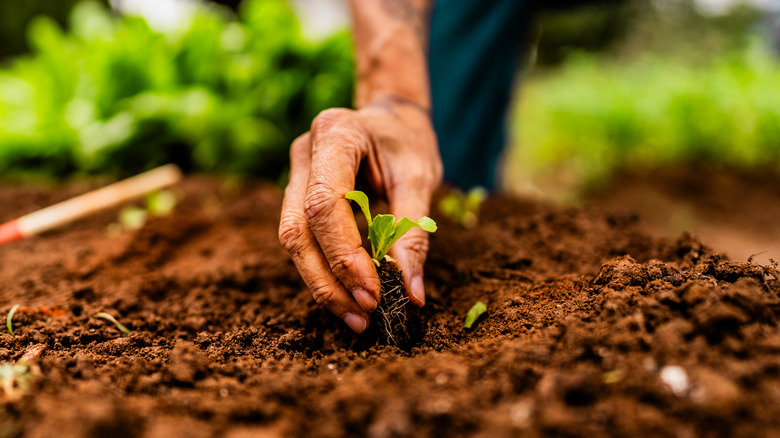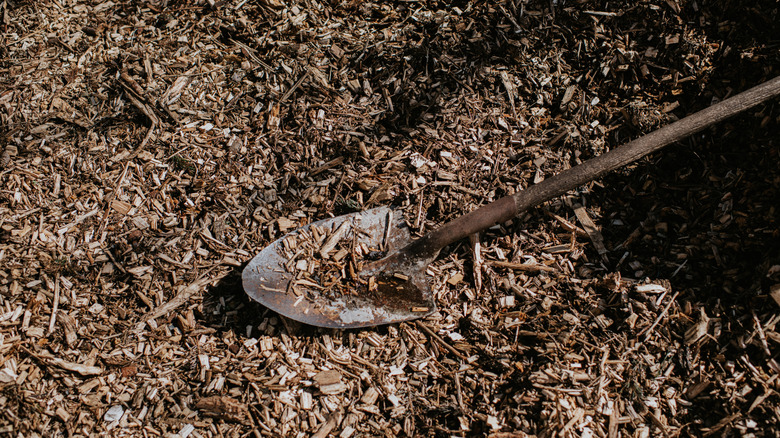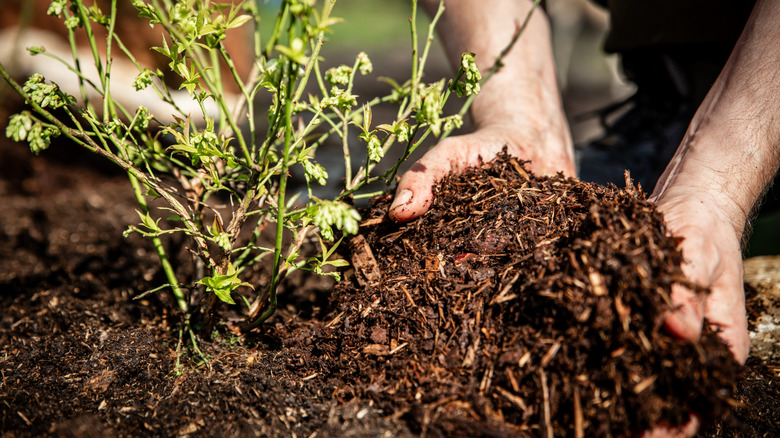Improve The Heavy Clay Soil In Your Garden With One Easy, Natural Fix
As any avid gardener knows, having the right soil in your garden is one of the most important steps in achieving healthy plant growth. Unfortunately, homeowners with heavy clay soil in their yards have a significant challenge on their hands. Often red in color, clay soil is very sticky when wet and extremely hard and compacted when dry, making digging and planting difficult. It also absorbs water more slowly and doesn't drain as well as other types of soil, so it is easy to overwater it. If clay soil is wet, air doesn't move through it as well, either, which can be a problem for healthy root growth.
But improving heavy clay soil may be as simple as adding some mulch to your garden. While "mulch" refers to any material that forms a protective layer over soil, it is usually made of organic materials, like wood chips, tree bark, or pine straw. Organic mulch is particularly beneficial for clay soil, but understanding the types to use, their impact on the soil, and the optimal application method for clay is crucial in addressing your soil problems.
How mulch helps improve clay soil
While there are some plants that grow well in a clay soil garden, improving your soil can make it easier to work with. One of the easiest ways to improve heavy clay soil is by adding organic mulch because it addresses one of the biggest problems with clay — how easily it compacts. Mulch helps break up clumps within the clay and prevents it from getting too heavy, especially after heavy rain. It also helps the clay hang onto its moisture during dry periods, preventing it from drying out or developing cracks.
As organic mulch breaks down, it infuses the clay soil with nutrients to aid in plant growth. It also attracts microbes and insects that benefit the soil and help break up clumps. In particular, mulch brings worms to the soil, which tunnel through the clay and help aerate it. As it does with all types of soil, having a layer of mulch on top of heavy clay soil helps discourage weeds in your garden, too, by blocking sunlight from reaching their root systems.
Using mulch on clay soil
For heavy clay soil, choosing the best type of mulch for your garden is essential. The mulch must be organic, but several types can work well to improve clay soil. If you plan only to spread the mulch over the top of your soil, wood chips or tree bark chunks work well since they break down slowly and provide long-term benefits. However, if you also want to work the mulch into the soil, tree bark granules are a better bet. Straw and shredded leaves also help attract worms and other organisms that aerate the clay.
To reap the full benefits of mulch in your clay garden, spread a 2- to 3-inch-thick layer of your chosen organic mulch over the soil. Maintain this blanket of mulch throughout the growing season, adding more as needed. A thick layer of mulch can help keep the soil cooler, so it's especially important in hot weather.


